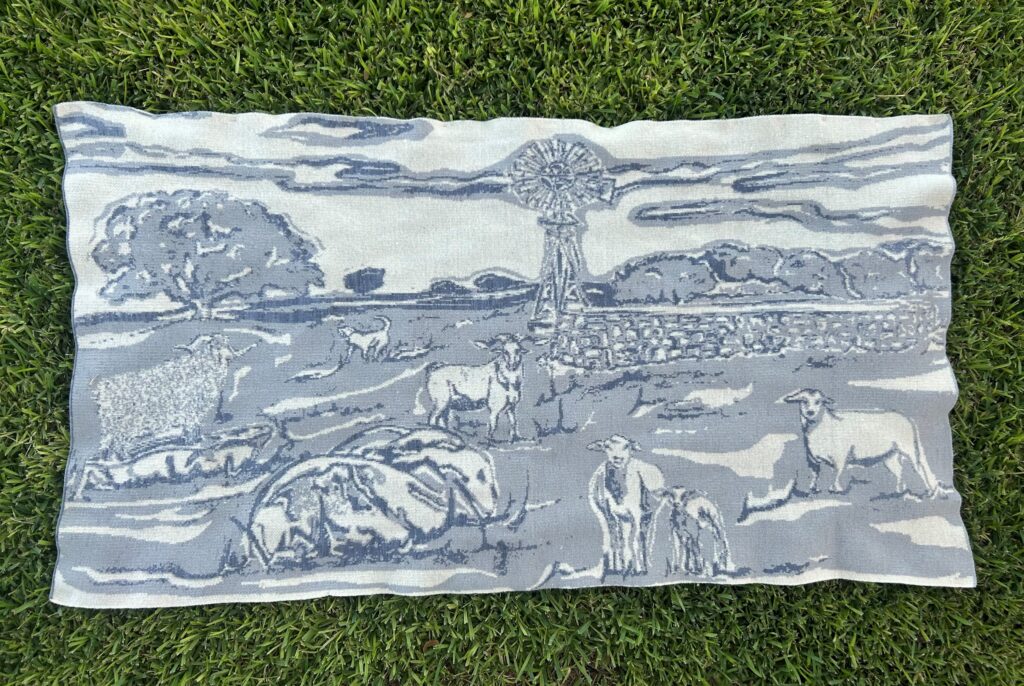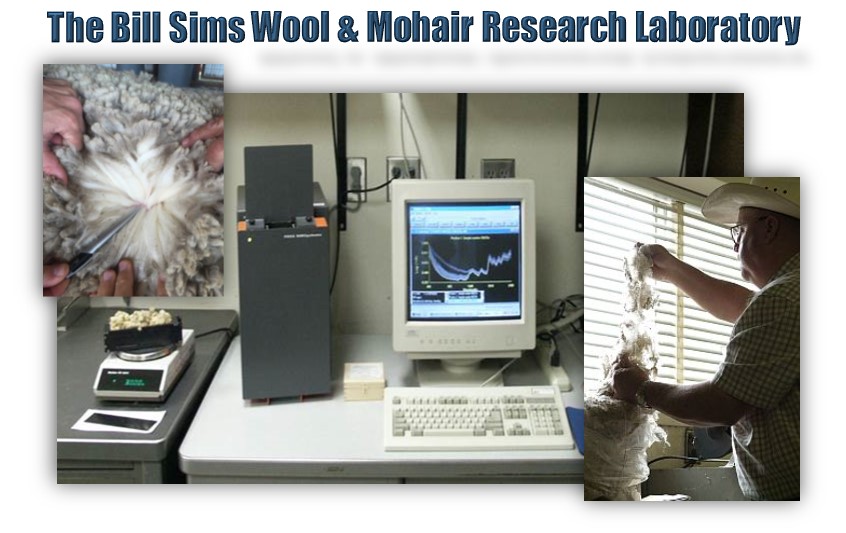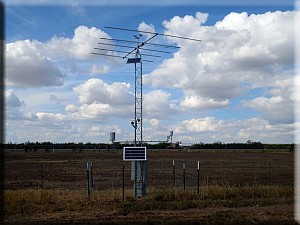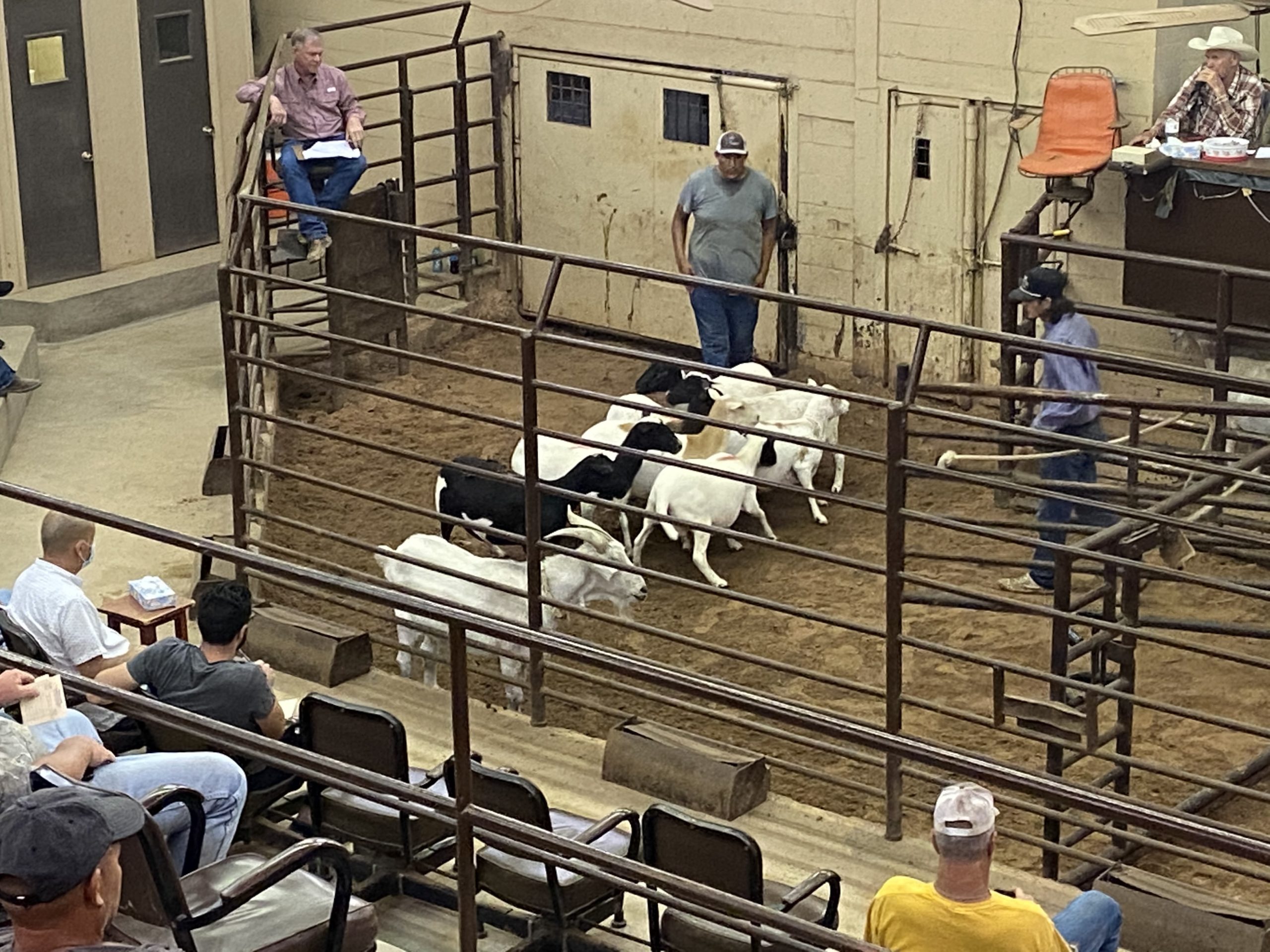AgriLife LGD Program Update
We are currently in the final stages of the second round of the LGD Bonding Project. If you would like to know more information about our bonding project, check out our next webinar on Thursday, Nov. 18 at 3 p.m. You can register for the Zoom presentation on our Facebook page by clicking on the blue “Go to Link” button or on the AgriLife Center’s website under the events section. The webinar will also be broadcast live on Facebook. The video will be recorded and posted to our YouTube Channel as well.
We look forward to seeing everyone in person on Oct. 8 in Fredericksburg at the Roeder Ranch. We will be hosting our first in person LGD field day since the fall of 2019. We will have several workshops from guest speakers, a ranch tour of Fritz Southdown’s, and a producer panel along with LGD breeders and a few vendors at the event. Check out our Facebook page @TAMUlivestockguarddog for more information. You can register for the field day by contacting the Gillespie County Extension Office at 830-997-3452 or via email at donna.maxwell@ag.tamu.edu.
LGD Bonding Project
Squiggy returned to Sonora and was doing well for a few days, but his cough returned, and the vet placed him back on antibiotics again. We will keep you posted on his progress. Miley is still in the kennel and has recuperated from the spear grass infection in her rear leg, but she is not gaining weight. After speaking with our vet, it was determined that Miley had Ehrlichiosis! She is in remission currently so with good feed and rest she should start building up muscle and fat reserves again over time.
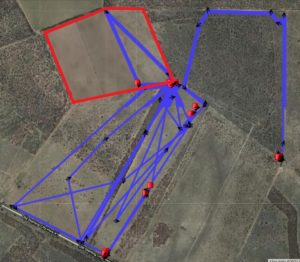
Thor and his goats travels on a weekend in September. The red area is the pasture they are supposed to be in! Thor is the blue line. We found the goats scattered across his travels. (Texas A&M AgriLife photo courtesy Costanzo 2021)
Thor is doing well at the Center with some replacement nannie goats. He is still roaming but not as far, it’s usually been over to a mesquite tree and water trough next to his pasture. I was very upset one weekend because I saw him traveling all over the Center pastures on the tracking app. After coming to work Monday morning, I discovered that the goats had broken out of the pasture in two different locations and Thor was only following the herd. Hopefully he stays by his goats this time and can return to the Martin Ranch in Menard with this set of replacements for good.
Doc and Johnny have been roaming again in Menard. In early September after having a helicopter fly the ranch to control feral hogs, Doc ended up at a neighbor’s ranch over a mile away. We placed him in a corral for 7 days without stock or other dogs. We returned him to his charges and Thelma after the week and he has not roamed since then. Johnny roamed in mid-September to a different neighbor’s ranch but returned on his own. Wyatt is still doing great in Ozona and is usually near his older mentor Max.
It’s important to do regular health checks and body condition scores on your dogs on at least a monthly basis. We discovered in the middle of the summer that our dogs in Menard were losing weight. We tried several things from decreasing the amount of feed placed in feeders, so it didn’t spoil in the heat, to adding insecticide tags to keep out beetles, but their consumption did not increase. By late summer we were having to supplemental feed the dogs with wet food which was time consuming and costly. After making observations of dogs in the kennel we decided to change feeds to a higher protein and fat content. The change has slowly increased the dog’s consumption of kibble and they are regaining weight again. We also brought some of the dogs back to the Center for recuperation and health checks by our veterinarian to make sure they did not have the tick-borne disease, Ehrlichiosis. Unfortunately, both of those dogs have the disease; one is in remission and the other is currently fighting the disease and was placed on 21 days of antibiotics. For those that have read older editions of the Guardian Way you may recall that two of our dogs from Ozona have been treated for that disease in the past. Ehrlichiosis is very common south of I-10 but is moving farther North each year according to our veterinarian. The main way to control the disease is to keep up with a good tick control program on your LGDs and, if you see them loose weight rapidly, have them tested for the disease as it can be fatal if not treated.
If you enjoyed the monthly LGD blog, please don’t forget to subscribe to it with this link The Guardian Way | Texas A&M AgriLife Research and Extension Center at San Angelo (tamu.edu).
To provide feedback on this article or request topics for future articles, please contact me at bill.costanzo@ag.tamu.edu or 325-657-7311. The Texas A&M AgriLife Livestock Guardian Dog Program is a cooperative effort by Texas A&M AgriLife Research and the Texas Sheep and Goat Predator Management Board. Make sure to follow us on our social media sites and share them with your friends and family!
Facebook: https://www.facebook.com/TAMUlivestockguarddog/
Instagram: @tamulivestockguarddog
YouTube: https://www.youtube.com/channel/UCF7YbP6bNDV7___6H8mifBA
Don’t forget to check out the Texas LGD Association on online! Follow the organization at https://www.facebook.com/TexasLGDAssociation or check out their website!


